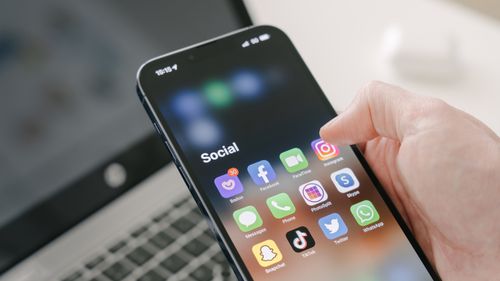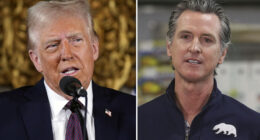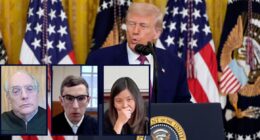During an interview on ABC’s “This Week,” Lutnick mentioned, “They’re exempt from the reciprocal tariffs but they’re included in the semiconductor tariffs, which are coming in probably a month or two.”
Later, Trump further confused the situation by stating on social media that there was no exemption at all. He clarified that these goods were merely shifting to a different category and would still be subject to a 20 per cent tariff. This decision aligns with the administration’s actions against China for its involvement in fentanyl trafficking.
The Trump administration had initially indicated that electronics would be excluded from broader reciprocal tariffs. This move aimed to help maintain lower prices for phones and other consumer goods that are not typically manufactured in the United States.
China’s commerce ministry in a Sunday statement welcomed the change as a small step even as it called for the US to completely cancel the rest of its tariffs.

On Air Force One Saturday night, President Donald Trump told reporters he would get into more specifics on exemptions on Monday. In his post Sunday on TruthSocial, he promised the White House was “taking a look at Semiconductors and the WHOLE ELECTRONICS SUPPLY CHAIN.”
Some had assumed the exemption filed night reflected the president’s realisation that his China tariffs are unlikely to shift more manufacturing of smartphones, computers and other gadgets to the US any time soon, if ever.
The administration has predicted that the trade war prod Apple to make iPhones in the US for the first time, but that was an unlikely scenario after Apple spent decades building up a finely calibrated supply chain in China.
It would take several years and cost billions of dollars to build new plants in the U.S., burdening Apple with economic forces that could triple the price of an iPhone and torpedo sales of its marquee product.
Neither Apple nor Samsung responded to requests for comment over the weekend. Nvidia declined to comment.







